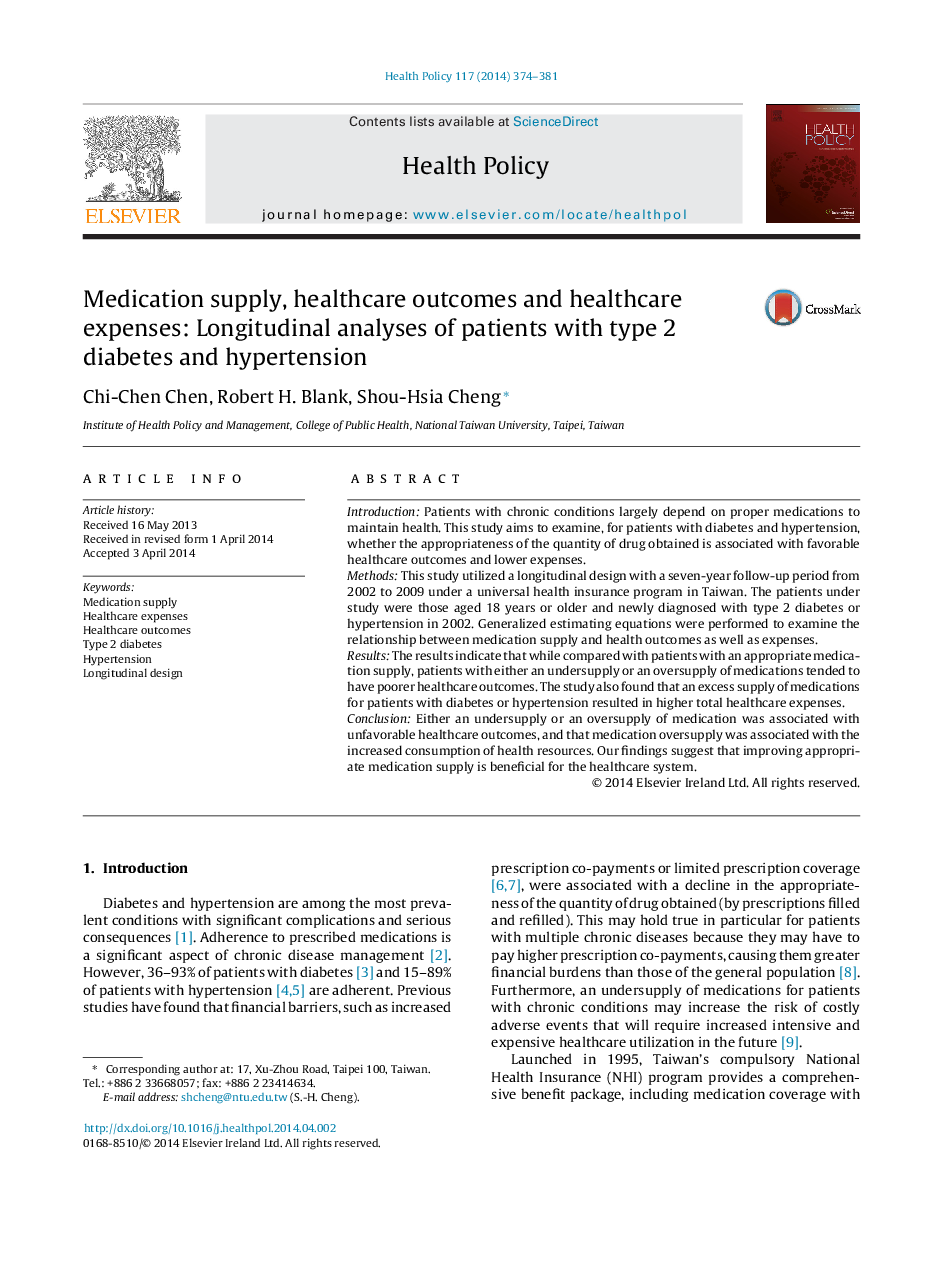| Article ID | Journal | Published Year | Pages | File Type |
|---|---|---|---|---|
| 6239734 | Health Policy | 2014 | 8 Pages |
â¢The medication possession ratio increase over time among new patients.â¢Both undersupply and oversupply of medication were associated with poorer outcomes.â¢An excess supply of medications resulted in higher total healthcare expenses.
IntroductionPatients with chronic conditions largely depend on proper medications to maintain health. This study aims to examine, for patients with diabetes and hypertension, whether the appropriateness of the quantity of drug obtained is associated with favorable healthcare outcomes and lower expenses.MethodsThis study utilized a longitudinal design with a seven-year follow-up period from 2002 to 2009 under a universal health insurance program in Taiwan. The patients under study were those aged 18 years or older and newly diagnosed with type 2 diabetes or hypertension in 2002. Generalized estimating equations were performed to examine the relationship between medication supply and health outcomes as well as expenses.ResultsThe results indicate that while compared with patients with an appropriate medication supply, patients with either an undersupply or an oversupply of medications tended to have poorer healthcare outcomes. The study also found that an excess supply of medications for patients with diabetes or hypertension resulted in higher total healthcare expenses.ConclusionEither an undersupply or an oversupply of medication was associated with unfavorable healthcare outcomes, and that medication oversupply was associated with the increased consumption of health resources. Our findings suggest that improving appropriate medication supply is beneficial for the healthcare system.
